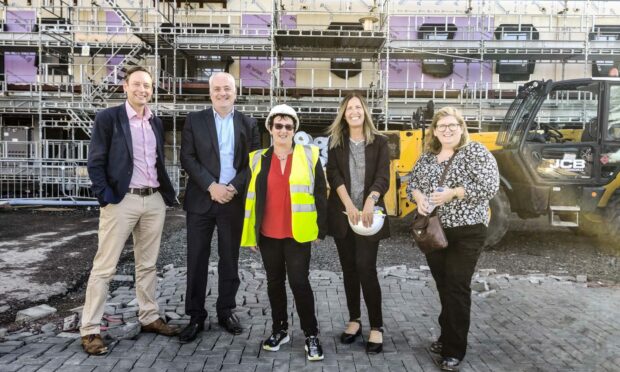A “long-term decline” in council planner numbers is damaging efforts to hit net zero carbon emissions by 2045, it has been claimed.
More than a third of planning staff at council level have been cut since 2009 creating staff shortages, according to a “watershed” report into local government and climate change.
The exodus has seen an “experienced middle tier” of staff leaving the planning profession or setting up in private practice.
That has left too many planning applications – including those for key renewables projects – stuck in a cycle of “churn, repetition and delay”.
That has frightened off other potential investors, MSPs believe.
The shortage is so bad it risks turning recent wide-reaching, national changes to the planning system into little more than a green “wish list.”
Members of the Scottish Parliament’s cross-party Net Zero Committee have called for the introduction of planning apprenticeships to tackle the problem.
The call is part of a wider package of measures designed to empower local government to deliver net zero carbon emissions by 2045.
Councils can’t ‘do more for less’ on climate
Conservative Edward Mountain is convener of Holyrood’s Net Zero Committee.
He said: “Over the course of almost a year of evidence-taking, it’s clear that unless key barriers facing local government are dealt with, we will not reach net zero by 2045.
“Local government is the layer of democracy closest to communities. We saw for ourselves on committee visits across Scotland the leadership and good practice many councils and their local partners are modelling.
“But against a backdrop of financial pressure, where councils feel they are being asked to do more for less, they are struggling to think and plan strategically to maximise their contribution to net zero.”
COSLA represents Scottish local authorities. Gail Macgregor is the body’s environment spokesperson.
She said publication of the report was “potentially a watershed moment for Scotland in tackling climate change.
“The report is clear that Scotland will not meet its ambitious climate targets without a more empowered local government,” she added.
Dundee ‘national leader’
The committee visited projects in four local authority areas, including Dundee.
Committee members praised work to turn the city into “a national leader in the provision of on-street EV charging points”, building standards in affordable housing at Hillcrest Homes and work at the Michelin Scotland Innovation Parc (MSIP).
Green committee member Mark Ruskell said: “It’s clear that councils are seeking to rise to the challenge of net zero.
“On our visit to Dundee, we were impressed by the city’s ambitions to be national leader in EV charging and its joint work with businesses to make MSIP an international beacon for green entrepreneurship.”
Net zero means cutting greenhouse gas emissions to as close to zero as possible, with any remaining emissions re-absorbed from the atmosphere,
To keep global warning to within 1.5C above pre industrial levels – and avoid the worst of climate change – world governments must hit the target by 2050.
The Scottish Government has pledged to hit the target five years earlier – a process that will lead to substantial change, including to transport, buildings and energy systems.











Conversation